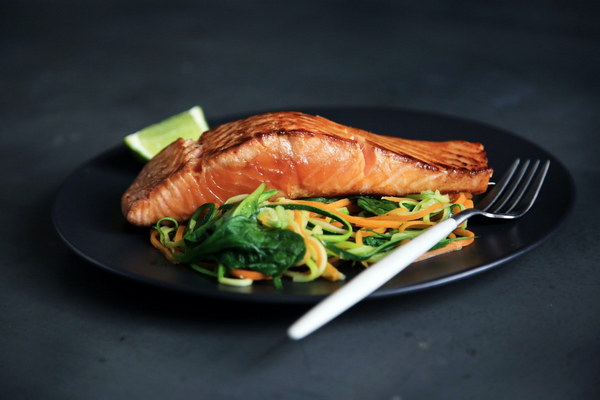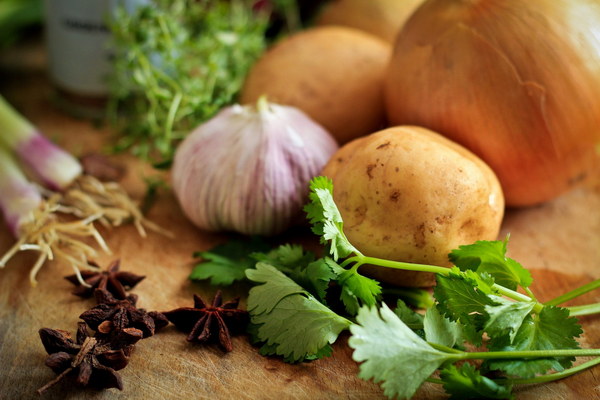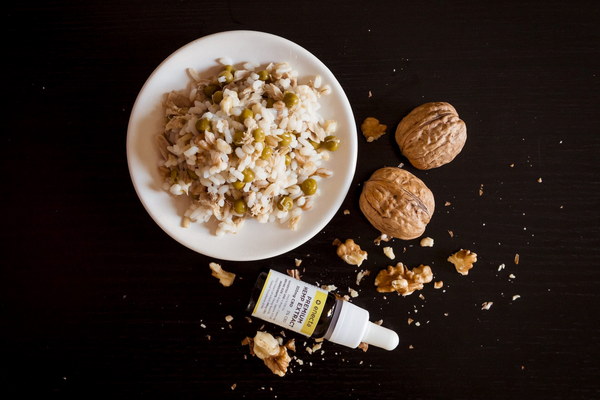Distinguishing between Tonification and Nourishment Understanding the Differences in Traditional Chinese Medicine
In the realm of Traditional Chinese Medicine (TCM), the concepts of tonification and nourishment play a crucial role in maintaining and restoring balance within the body. While both aim to enhance overall health and well-being, they differ in their approaches, target areas, and the conditions they treat. This article will explore the differences between tonification and nourishment, providing a clearer understanding of their applications in TCM.
Tonification, also known as Bu, focuses on strengthening the body's vital energy, known as Qi, and enhancing its resistance to illness. It is primarily concerned with addressing deficiencies in Qi, which can result from various factors such as stress, poor diet, or genetic predisposition. Tonification aims to replenish and reinforce the body's internal resources, promoting a state of harmony and vitality.
On the other hand, nourishment, also known as Yin, is centered on nourishing the body's Yin energy, which is responsible for cooling, moisturizing, and balancing the body's fluids. Nourishment is particularly relevant in cases where Yin deficiency is present, which can lead to symptoms such as heat, dryness, and inflammation. The primary goal of nourishment is to restore the body's Yin balance, ensuring that it remains cool, hydrated, and flexible.

One of the key differences between tonification and nourishment lies in their target areas. Tonification primarily focuses on the Qi and the organs, addressing deficiencies at a more fundamental level. This can include enhancing the function of specific organs, such as the spleen and kidneys, which are crucial in the production and circulation of Qi. In contrast, nourishment targets the body's fluids, tissues, and meridians, aiming to restore balance and harmony within the body's Yin aspect.
Another distinguishing factor between tonification and nourishment is the types of conditions they address. Tonification is particularly effective for treating conditions related to Qi deficiency, such as fatigue, weakness, and low immunity. By strengthening the body's vital energy, tonification can help alleviate these symptoms and improve overall well-being.
Nourishment, on the other hand, is more effective in treating conditions related to Yin deficiency, such as hot flashes, night sweats, dry skin, and constipation. By replenishing the body's Yin energy, nourishment can help cool the body, moisten the tissues, and alleviate the symptoms associated with Yin deficiency.
In practice, tonification and nourishment are often used in conjunction to achieve the best results. For instance, a patient with both Qi and Yin deficiencies may benefit from a combination of tonifying and nourishing herbs and dietary recommendations. This integrated approach allows TCM practitioners to address multiple aspects of the patient's condition, promoting a more holistic and effective treatment plan.
In conclusion, tonification and nourishment are two distinct yet complementary concepts in Traditional Chinese Medicine. While both aim to enhance overall health and well-being, they differ in their approaches, target areas, and the conditions they treat. Understanding the differences between tonification and nourishment can help individuals seeking TCM treatment make informed decisions and achieve the best possible outcomes. By addressing both the Qi and Yin aspects of the body, TCM practitioners can provide a comprehensive and personalized approach to healthcare, fostering a state of balance and vitality in their patients.









